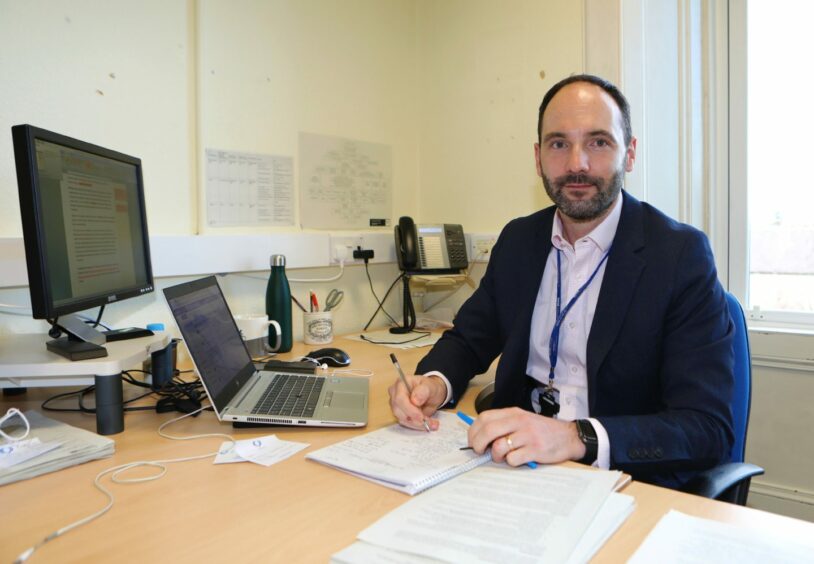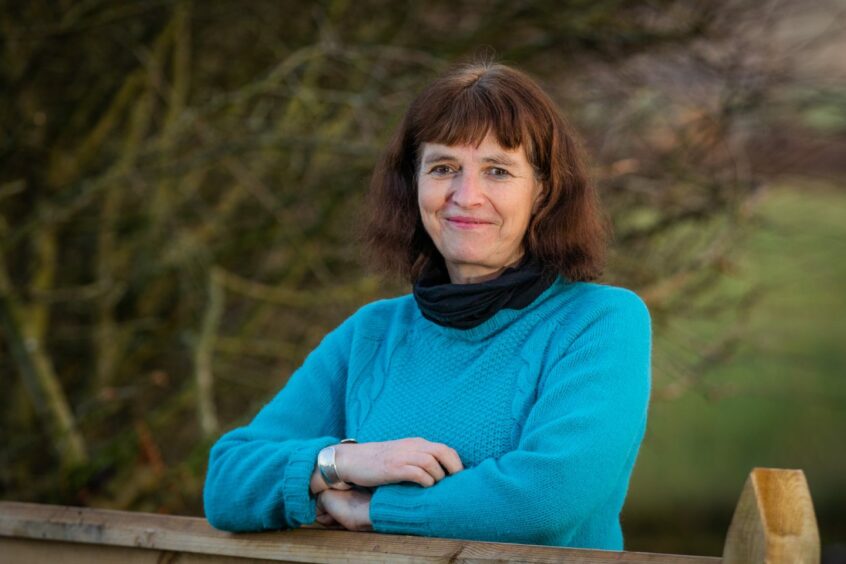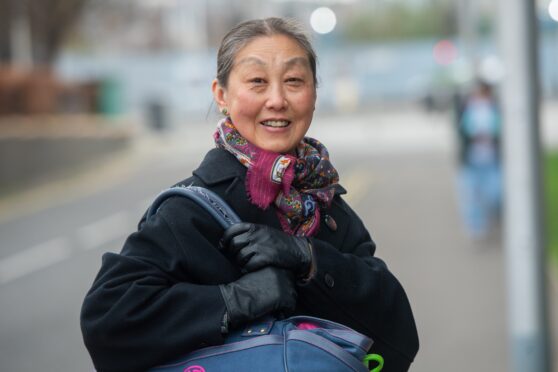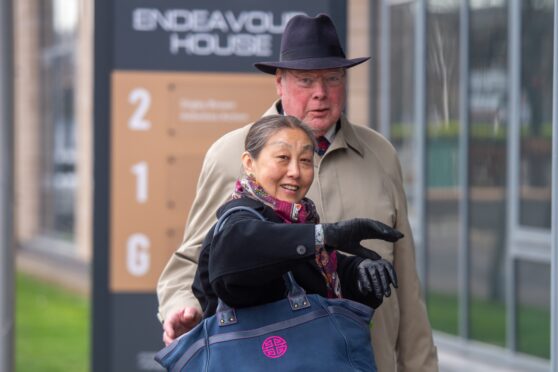School dinners uptake in primaries in Tayside dropped to 65% of pre-pandemic levels during a critical part of last year.
Figures fell during August to December 2020, when movement was heavily restricted and school dining halls were out of bounds.
A study into the provision of school meals during this period was launched by NHS Tayside, in line with its Child Healthy Weight Strategy, which aims to reduce child obesity.
The research, which will be published in the coming weeks, raised concerns about the low school dinners uptake during this time, despite coinciding with more children becoming eligible for free meals.
Normal meal services were replaced with hot and cold bagged meals during this period, which Tayside Contracts said is not representative of their usual service and that uptake is now almost 90% of pre-pandemic levels.
‘Above and beyond’
While commending the hard work of suppliers Tayside Contracts during this difficult period, researchers also noted some areas where improvements could be made.
NHS Tayside dietetic consultant in public health, Dr William Cook, led the study alongside professor of public health nutrition, Annie Anderson, of Dundee University.
Dr Cook said: “Catering providers went above and beyond to deliver these meals during this period. Dining halls were not in use and children were eating in classrooms.
“Providers were faced with the challenges of getting food to them in a non-dining setting – cutlery had to be individually wrapped and food served in individual plates.”
Good practice
Areas of good practice were identified with the delivery of school meals in Tayside during this period, as well as in Fife and East Ayrshire, which were also studied for comparative purposes.
However Dr Cook said that through the research teachers in Tayside reported more children ‘turning up to school hungry’, and that a drop in the area’s school meals uptake was ‘concerning’.
This was particularly worrying because it coincided with the Scottish Government increasing free school dinners eligibility to include P4 children (last August).
It’s a big problem if children are not taking meals they are entitled to.”
Dr William Cook
He said: “It’s a big problem if children are not taking meals they are entitled to.
“Research shows packed lunches are inferior to these meals, which are in line with government requirements on nutrition and on what can and can’t be served in schools.
“That’s why we are concerned and why we want to increase meal uptake.”
Studies by the NHS have shown that, on average, primary school children’s packed lunches contain higher levels of sweetened foods and drinks, savoury snacks, fats and salt.
They also have lower levels of fibre, protein, vegetables and water, than regulated school meals.
Prof Anderson said: “During the pandemic the uptake of free school food in Tayside went down and that’s the last thing we want.
“It’s not about just giving them what they want and filling them up, it’s not about calories, that goes against the whole ethos of school meals, it’s about nutrition.
“But if food doesn’t look good, they won’t eat it. Gone are the days of saying ‘if they’re hungry enough, they’ll eat it’ – they don’t.”
‘Quality had dropped’
Researchers also looked at menus offered to school children in Tayside and spoke to both teachers and caterers.
Prof Anderson added: “About one in three [teachers spoken to] believed the quality had dropped when compared to meals prior to this period.
“They highlighted poor visual quality, appearance, plates that made meals look like a take away, portion sizes, choices and perceived value for money.
“They were particularly critical of the sandwich instead of hot food.
Teachers are not experts in nutrition but they are the ones seeing the food”
Prof Annie Anderson
“Teachers are not experts in nutrition but they are the ones seeing the food and if it’s not appealing then kids aren’t going to eat it.”
She said that following the discussions, recommendations were suggested to Tayside Contracts, which it has been quick to ‘take on board’ and implement.
This included investigating portion size, as was previously reported in The Courier, and minimising cold options – they are believed to no longer serve the sandwich.
Prof Anderson added that she would be keen to revisit the situation at a later date and see if the changes have had any impact on uptake figures.
However both Prof Anderson and Dr Cook acknowledged this was not the sole responsibility of the supplier and external factors such as dining hall experiences should also be considered.
Figures since increased
A spokeswoman for Tayside Contracts said school dinners uptake was currently up to almost 90% of pre-pandemic levels.
She said: “The meals featured in the study are not remotely representative of our normal meals service, which was reinstated in January 2021.
“Whilst managing to design and deliver a hot bagged meal service to pupils at the height of the pandemic was an immense achievement by our catering staff, unsurprisingly uptake of meals was significantly lower than normal.
“In anticipation of the fact that this situation may arise in future, Tayside Contracts and other Scottish local authorities are working together to identify what lessons can be learned from our first venture into providing a Covid-secure schools meals service.
“Hopefully, the findings and recommendations of this study will prove useful and be of assistance to all of us.”












